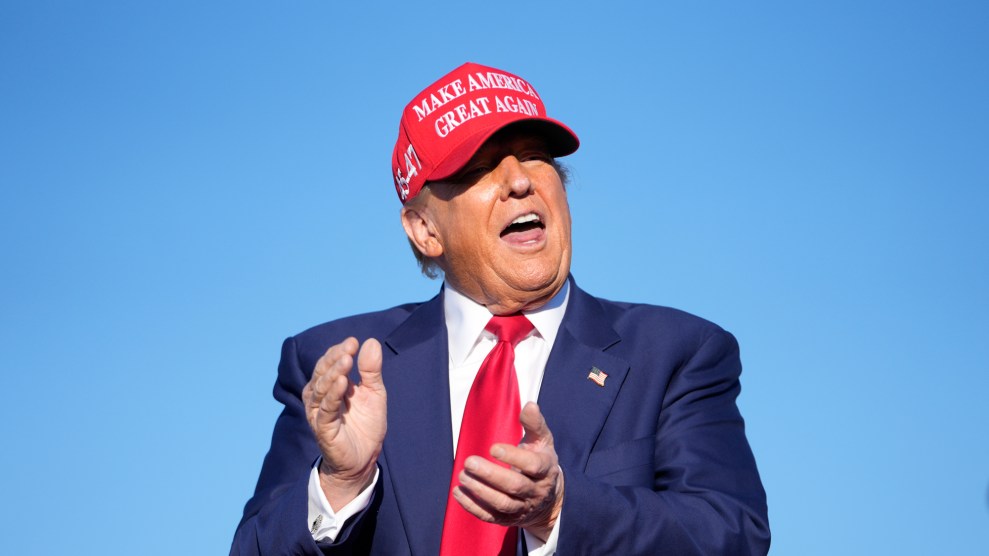You’ve read about all the jostling behind the scenes in Washington’s quest to reform health-care: Big Pharma cutting a $80 billion backdoor deal with the White House, health insurers fighting tooth and nail against a public option, all affected parties and industries positioning themselves to reap the benefits of an overhaul of our $2.5 trillion health-care system. But there’s another industry, one you’ve likely heard less about in the debate, that also stands to win or lose from reform: medical device makers.
The companies bringing you artificial hips, stents, defibrillators, and much more, medical device makers have not cut a deal with the White House or Democratic lawmakers, and face new taxes costing $20 billion or more if the legislation now circulating in Congress becomes law. But as writer Peter Stone points out in his story “Take Two Kickbacks” in Mother Jones‘ November/December issue, a lot more than tougher taxes is in order to reform the fraud-ridden, flawed medical device industry.
Stone’s story highlights the prevalence of doctors receiving lucrative kickbacks in exchange for using and promoting a company’s medical products. This kind of illegal plying is so widespread, Stone reports, that between June 2006 and July 2009, device makers paid $535 million to the federal government for illegal marketing activities. One example: In 2006, Stone writes, device maker Medtronic “agreed to pay the feds $40 million to settle allegations that from 1998 through 2003 it had set up sham consulting and royalty agreements, trips to strip clubs in Tennessee, and other incentives to entice surgeons to use its spinal products.” Though the consequences of these kinds of deals can be fatal, they’re hardly novel in an industry plagued by graft and fraud.
If Stone’s story shows us anything, it’s that, like health insurers and drug makers, the medical device industry is long, long overdue for reform, too.















